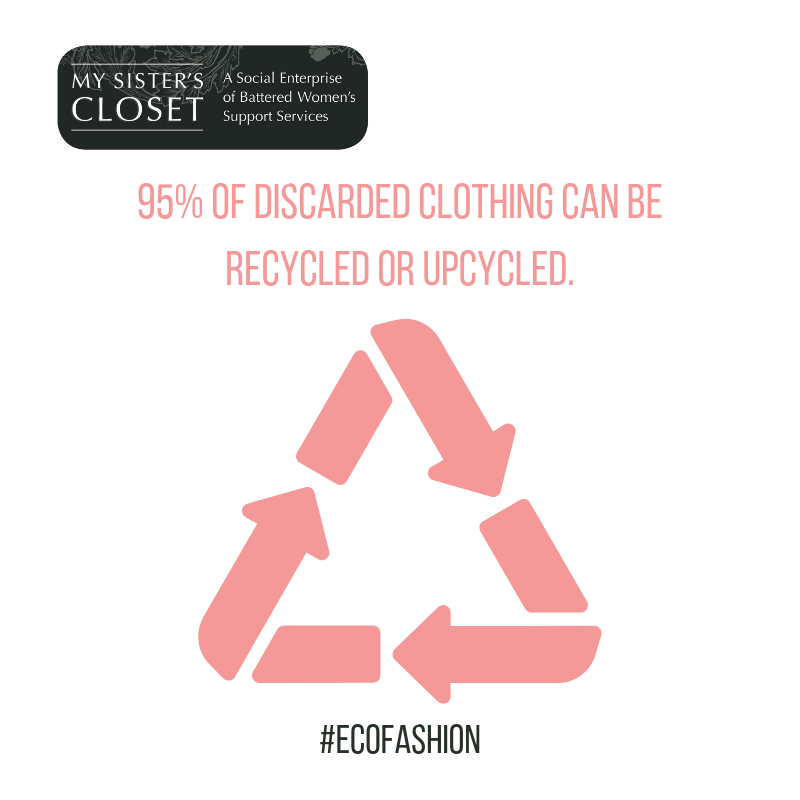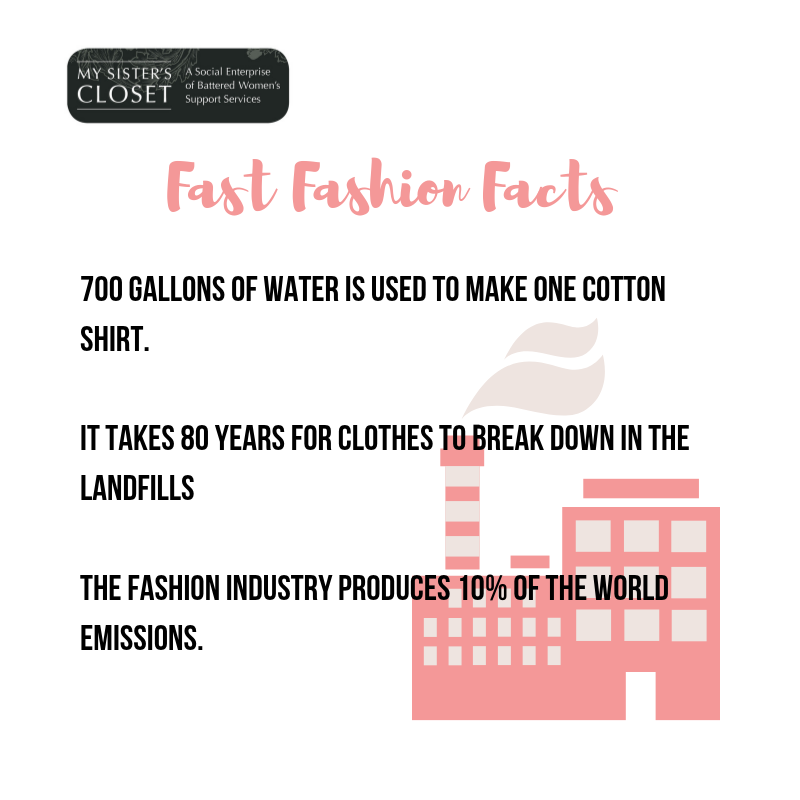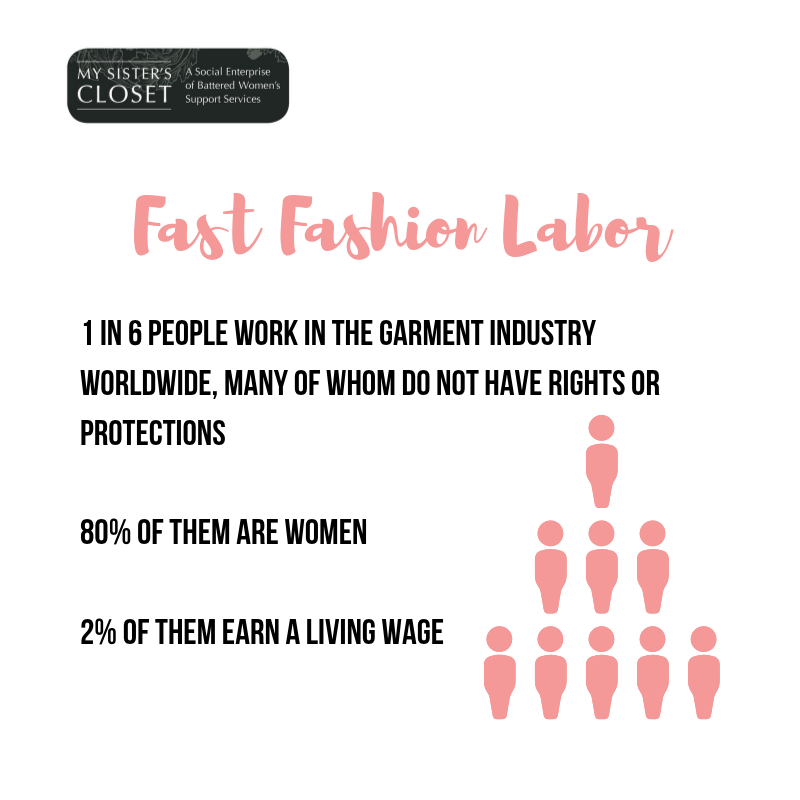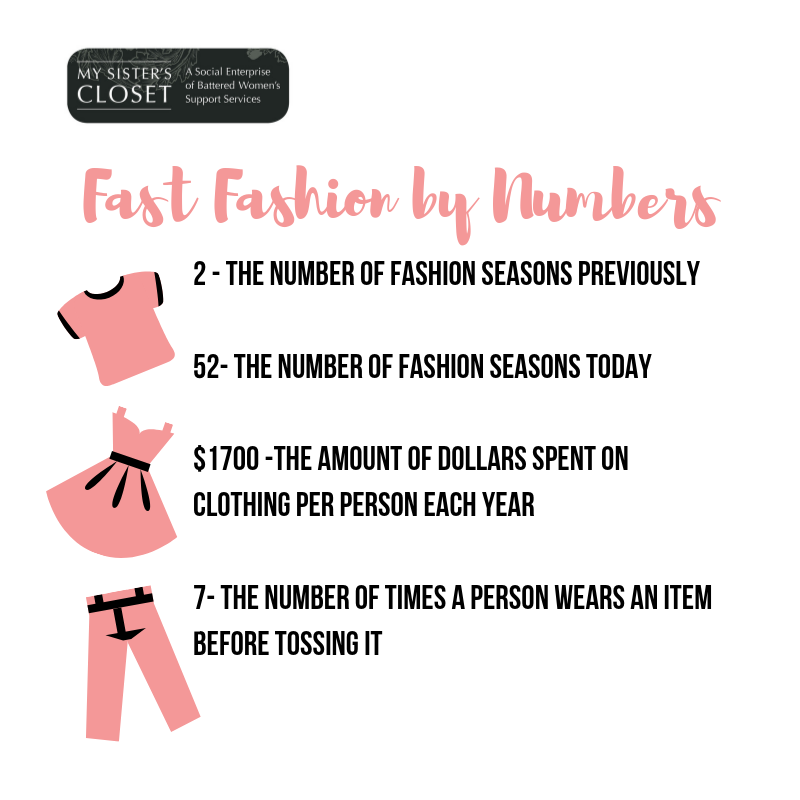 The Problem with Fast Fashion
The Problem with Fast Fashion
In the last two decades something has changed in the fashion industry. Clothes have become cheaper, trend cycles have sped up and shopping has become a monthly if not weekly event for many of us. Fast Fashion, large global chains dominate the shopping malls and online world. But how does it impact people and the planet?

What is Fast Fashion
Fast fashion is a business model that uses cheap materials and labor to churn out clothing collections at a rapid pace and can be summed up as cheap, trendy clothing, that samples ideas from fashion shows and/or celebrity culture and turns them into garments available online and in stores almost overnight. Rather than being just a category, fast fashion is a model of mass-producing cheaply made, ‘of-the-moment’ items that are sold at a lower price point. It also reflects the growing consumer desire for speed and value within retail. It means that, instead of waiting for new seasonal collections (i.e. spring / summer), consumers can get their hands on a continuous cycle of trend-led clothing, all year round.
Impact of Fast Fashion
Fashion—a $2.5 trillion sector—is the second most polluting industry on Earth, right behind oil. The pressure to reduce costs and speed up production time means that environmental corners are cut in the name of profit. Fast Fashion’s negative impact includes the use of cheap, toxic textile dyes – with the fashion industry the second largest polluter of clean water globally after agriculture.
The speed at which garments are produced also means that more and more clothes are disposed of by consumers, creating a huge amount of textile waste. In Canada, the average person throws out 81 pounds of textiles annually, while North Americans send 9.5 million tons of clothing to the landfill every year — most of which could be reused.
On April 24, 2013 the world got a reality check when the Rana Plaza clothing manufacturing complex in Bangladesh collapsed, killing over 1,000 workers and injuring over 2,500. There are approximately 40 million garment workers in the world today; many of whom do not have rights or protections. They are some of the lowest paid workers in the world and roughly 85% of all garment workers are women. The exploitation of women’s work is too big to ignore.
 Solutions
Solutions
Luckily, we have many options outside of fast fashion, and it’s possible to find stylish, affordable, and ethical clothing if you just know where to look.
Buy Less!
Don’t buy something unless you truly need it. Most of us are guilty of buying more things than we need. Instead, try and extend the life of the clothing you have already. Wash your clothing less and according to the label. This not only reduces your carbon footprint, washing your clothes less will also make them last longer.
You can also get a small sewing kit to use for mending holes and buttons. By mending your clothes when they’re damaged, you can prolong their lifetime and reduce the amount of clothing being sent to landfill.
Mix and match your garments to create new styles and learn to love your clothes, even if you have had them for a long time.
Shop thrift!
With fast fashion seasons now changing every single week, new garments are being produced far too often. Ditch fast fashion like it’s last week’s trends and start shopping thrift! Shopping thrift is the best way to reduce your clothing footprint. It is a great way to find high quality, unique garments at a fraction of the price of buying new.
When shopping thrift make a list of what you are looking for before you go to help get organized. Make sure you try everything on before you buy it! Sure, it takes more time, but thrifted clothes can fit nothing like you expect them to. Look for staple and layering pieces when you shop. When you buy something, try to picture how often you’ll wear it. If it can be worn often, in multiple ways and with different outfits, it’s worth buying.
Buy Sustainable
Research and buy from eco-fashion companies who are pursuing the production of clothing with more environmentally friendly methods. Examples of this are companies that are attempting to be more sustainable and make use of materials that are recycled. Buying from local small brands that focus on creating a culture of sustainability by producing less from the onset. They use strategies like producing made-to-order, so they are not making more than what is sold to create less waste. They also design clothing to be of the highest quality, ensuring durability and longevity, so clothes last a long time in your wardrobe. Some places will even repair your clothing so that you may keep it longer.
Donate!
When you donate your clothes to My Sister’s Closet you’re helping to divert tens of thousands of pounds of clothing from the landfill. In just four months 22,868 pounds of textiles were diverted from landfill from only our Seymour location.
Donations can be dropped off anytime during opening hours at our two locations 1092 Seymour St. and 1830 Commercial Drive, both in Vancouver.

My Sister’s Closet
At BWSS we have always known that the issues of violence against women, fashion, consumerism, and the environment are all connected. In 2001, we formed My Sister’s Closet to shift away from excess consumption, recognizing the role of textiles and the overarching degradation of the environment and looking at oppression and globalization especially how they grind down on women’s lives in terms of the male violence they are subject to and the sexual violence and exploitation they face at various levels in the fashion industry.
We know you want to be more conscious of your shopping, and because of your support My Sister’s Closet has expanded and we opened our second location earlier this year. Revenue generated from the sales of donated clothing and accessories help fund violence prevention and intervention services that we operate assisting us to respond to 13,000 requests annually.
Visit us!
Address:
1092 Seymour Street (corner of Helmcken Street in Yaletown)
Vancouver, BC Canada V6B 1B4
1830 Commercial Drive
Vancouver, BC V5N 4A5
Boutique hours:
We’re open seven days a week
Monday – Thursday from 10 am to 6 pm
Friday from 10 am to 7 pm
Saturday from 11 am to 7 pm
Sunday from 12 pm to 6 pm




